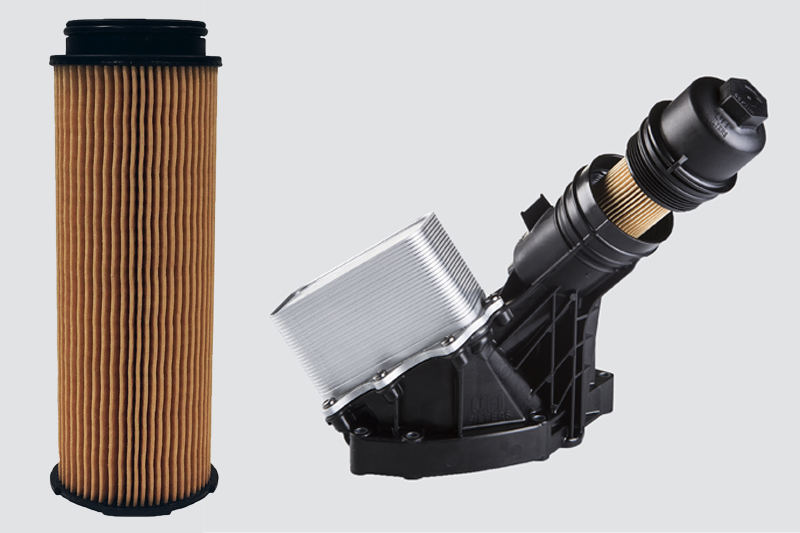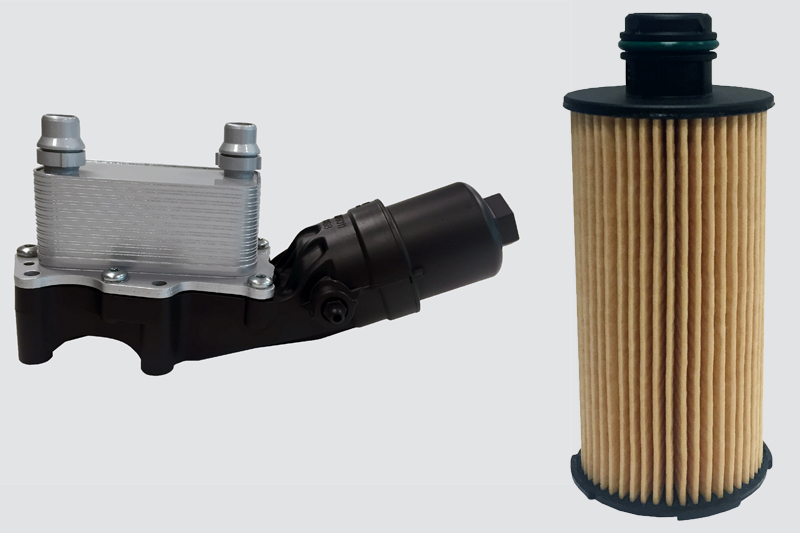
UFI Filters examines some of the technological trends emerging in the world of oil filters, and emphasises why it is so important to choose quality over price.
The normal wear of an operating engine generates the abrasive particles dust and soot (combustion residues). Whilst oil is lubricating and cooling the moving parts of an engine, it also transfers these contaminants to the sump. To remove these harmful particles, a good oil filter is required so that the oil can recirculate around the lubrication system and avoid unnecessary wear or damage.
In recent years, oil filtration technology has changed, with the development of advanced media, alterations to filter design and the integration of functions into one module. The reason for this rapid change can be attributed to two main factors:
1.) The evolution of lubricants
- New ‘long life’ oils
- New additives to increase the lubricity
- Presence of ‘soot’ and biodiesel in the oil
- Mineral and non-mineral oils, and their degradation and contamination due to the regeneration of DPFs.
2.) The evolution of engines
- Start-stop systems that increase the pressure losses of the system
- New Euro 6 engines – and Euro 7 engines in the future
- General downsizing of engines
To ensure the proper operation of these engines, UFI Filters has developed filter media which mainly consist of synthetic fibres that can also interact with the soot and biodiesel, with the following physical-chemical characteristics: thinner fibres, smoother surfaces with limited degree of soot gel adhesion, and a high index of permeability that allows a lower pressure drop of the engine oil system.

The correct dimensioning of the cartridges allows the highest level of filtration efficiency to be achieved and prevents clogging of the filter. Targets set by regulations are also met through the design of ‘green’ modules, to reduce the environmental impact and the integration of multiple functions within the oil module.
Development trends of oil filtration systems
The continuous development of internal combustion engines seems to go hand in hand with further downsizing, in order to better fulfil the strict requirements in terms of fuel consumption and emissions. In parallel, an increasing demand for performance by consumers must also be met by these new engines. The balance of all these requirements will have a direct influence on the evolution of future oil filtration systems, and the impact can already be seen in the latest developments of the oil filter modules. The oil modules recently introduced for the latest BMW 3.0L engine as well as for the Alfa Romeo Giulia, for instance, already reflect these emerging trends.
Ian Jackson, UFI’s Aftermarket UK & Ireland Business Development Manager, talks about the oil filter of choice.
Choosing the best quality filter can be tricky and without a laboratory and a team of scientists, it is almost impossible to guarantee that you are buying a filter that matches or exceeds the specification of the part that is recommended by the vehicle manufacturer. Buying and fitting a cheap aftermarket filter can seem like a good idea at the time, and can initially save you a few pounds, but the reality is it can cost you more over the period of time it is installed.
Damaging particles can remain in the engine due to poor filtration in the oil filter. This means that cheaper poor-quality filters can compromise engine performance and reliability, increase fuel consumption and increase harmful emissions.
At UFI Filters, we have a research centre with laboratories and specialists who constantly work to ensure that we are providing products that exceed today’s stringent requirements of the vehicle manufacturers. We have developed an aftermarket filter program that incorporates our Original Equipment filters and our philosophy of meeting the demands of tomorrow, today.









